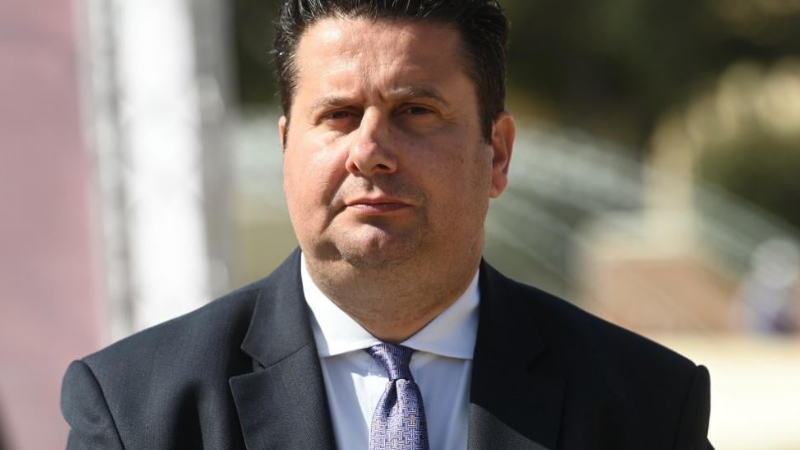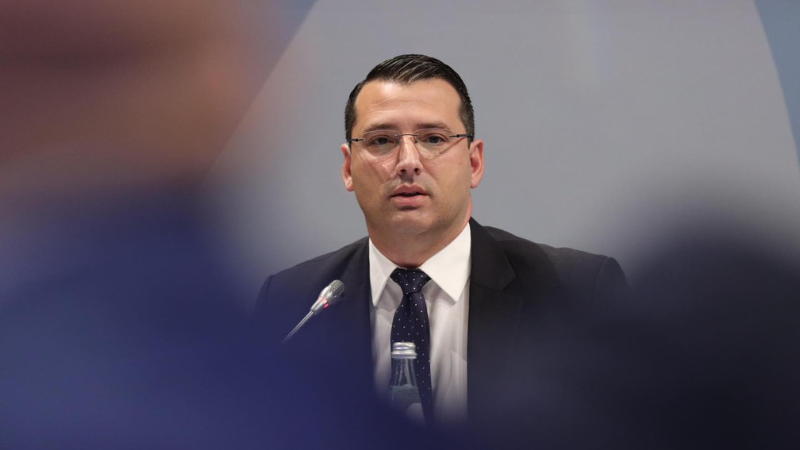One aspect that seems to have been overlooked in the discussion on Edward Zammit Lewis’ possible nomination for the post of Judge at the European Court of Justice (ECJ) in Luxembourg is his legislative undertakings.
Several media outlets reported that Prime Minister Robert Abela’s plans to potentially nominate Zammit Lewis to replace Ramona Frendo and the possibility of Zammit Lewis’ nomination has been met with swift and fierce criticism.
There are many reasons for this, several of which have been outlined in detail. These include how Zammit Lewis publicly defended Konrad Mizzi and Keith Schembri when it was revealed that they had opened companies in Panama. Both are now accused of serious criminal offences following the VGH/Steward magisterial inquiry.
Then there are his close ties with disgraced former prime minister Joseph Muscat, and the awkward chats exchanged with Yorgen Fenech, the man charged with masterminding Daphne Caruana Galizia’s assassination.
He also failed to declare his family relationship with former Attorney General Peter Grech when he handed him a lucrative consultancy job just a few weeks after Grech resigned in 2020.
But what about his track record during his tenure as justice minister?
Rule of Law reforms
Edward Zammit Lewis succeeded Owen Bonnici as Minister for Justice, Governance and Equality between 2020 and 2022.
As soon as Zammit Lewis was appointed, he was tasked with implementing the Council of Europe’s Venice Commission recommendations on the rule of law reforms in Malta. The recommendations were made following an opinion published by the Venice Commission in 2018.
Despite the potential for significant change, Zammit Lewis rushed six of the 10 Bills put before the House of Representatives, which were quickly made into law. The government touted this move as proof of its effort and commitment to implement the Venice Commission’s recommendations.
Yet this earned Zammit Lewis nothing but a stiff rebuke from the Commission because it had not been given the time to assess the proposed legal texts. The Venice Commission proceeded to identify loopholes in all but two of them.
“Constitutional amendments,” the Commission’s opinion said, “are meant to have a profound and long-term impact and hence require wide consultations within Maltese society. Thus, the rushed process through Parliament comes not only as a surprise but also a disappointment.”
The Council of Europe’s body of constitutional experts is so influential that its opinions are cited as a point of reference by international and European bodies, including European courts, in passing judgments on specific cases.
This criticism of Zammit Lewis’ work wouldn’t be the Venice Commission’s last.
Trying to amend the Constitution
In March 2021, Zammit Lewis wanted the House of Representatives to approve two Bills (Bill 166 and 198), allowing any fines issued by a regulatory authority to be interpreted as a criminal punishment.
This would have allowed penal sanctions to be imposed even by tribunals, many of which hardly qualify as independent, instead of solely by the courts established under Malta’s Constitution.
Bill 166 aimed to amend Article 39 of the Constitution, which ensures the right to a fair trial by an independent and impartial court within a reasonable time. It would require a two-thirds majority to pass.
Bill 198 was to amend the Interpretation Act. In this Bill, the government provided its version of an administrative penalty with a criminal nature that directly conflicted with the unanimous case law of the Constitutional Court. This Bill only needed a simple majority vote.
On the surface, Bill 198 appeared to be an innocuous piece of draft legislation. However, it contained provisions that undermined the supremacy of the Constitution and made nonsense of Malta’s Constitutional Court’s review of government actions.
In his parliamentary address, Zammit Lewis had said that amending the Interpretation Act would allow for the proper functioning of fine-imposing institutions and do away with the need for these bodies to go to court over administrative fines. Maltese legal experts from all quarters strongly disagreed.
Faced with such strong resistance, Zammit Lewis turned to the Venice Commission to get these dangerous legal provisions endorsed internationally. Yet the Commission agreed with Malta’s legal experts.
It said the best route to changing how fines were handed out would be through an amendment to the Constitution, not another existing law.
The Bill proposing an amendment to Article 39 of the Constitution was defeated in parliament as it did not garner the necessary two-thirds of votes.
Unexplained Wealth Orders
Zammit Lewis’ failure to introduce Unexplained Wealth Orders as part of the Proceeds of Crime Bill again meant that the Bill fell short of the type of effective tool needed to fight money laundering and corruption.
An Unexplained Wealth Order is an investigatory order placed on a Politically Exposed Person (PEP) whose assets appear disproportionate to their income, requiring them to explain the origins of his/her wealth.
In a committee hearing in the House on the Proceeds of Crime Bill (Bill 160), Opposition MPs urged Zammit Lewis to include Unexplained Wealth Orders as an essential tool in the fight against hard-core criminals who are officially unemployed and possess substantial assets.
Zammit Lewis, however, insisted that Malta’s tax and social security laws already provided clauses on unexplained wealth.
Yet he admitted the law was only as good as the institutions tasked to enforce it. “We do not have a good history of confiscating assets, with the data showing that assets confiscated by the courts are still being used. So we’re looking at Unexplained Wealth Orders as a second step on this law.”
The Proceeds of Crime Bill, enacted into law in 2021, includes provisions for seizing assets suspected of being obtained through criminal means, even without a conviction.
Yet this applies only in three specific cases where the owner of the assets is not alive or present in Malta. According to the Bill, non-conviction confiscation will only be possible when a perpetrator absconds, is not in Malta, or is deceased.
Zammit Lewis’ track record speaks for itself.













If anyone wants to know Zammit Lewis laws , hear Dr. Joseph Ellis cutting him down to size and correcting the mistakes in the laws. In a particular case , the Maltese and English Versions were conflicting.
TOTALLY UNFIT FOR JUDGE OF THE ECJ.
Hopefully the due diligence exercise by the EU will kill his aspirations.
Let us hope so!!!
EZL …..Hu mhux Gahan pero’ !!
Kif il Prim Ministru ma jindunnax li meta innomina lil xi hadd ghal UE, Jekk dan ma jigiex accetta, qed j insult a l intelligenza tal pajjiz kollu.